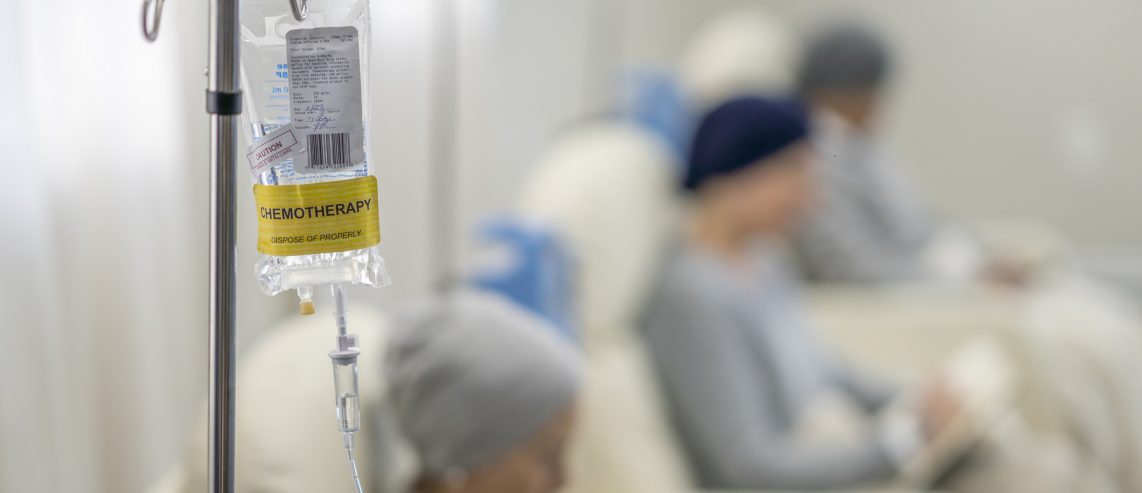After cancer treatment, doctors may prescribe preventive chemotherapy to reduce the risk of cancer returning to your body.
While preventive chemotherapy isn’t a clinical term, it may refer to chemotherapy done after another primary treatment, such as surgery or radiation, has removed cancer.
Preventive chemotherapy is a type of adjuvant therapy for cancer. While curative care may target existing, visible cancer in your body, adjuvant therapy addresses potential residual cancer cells and lowers your long-term risk of cancer recurrence.
Adjuvant cancer therapy could include chemotherapy, radiation, immunology, targeted, or hormone therapies.
Never Miss a Beat!
Subscribe to Our HealthBeat Newsletter!
Thank you for subscribing!
You can now select the specific newsletters you'd like to receive.
You are already subscribed.
Subscribe to more newsletters in our email preference center.
Sorry, an error occurred. Please try again later.
Get Healthy Tips Sent to Your Phone!
What Is Adjuvant Cancer Care?
Your doctor may report that your recent cancer surgery was a success — but adjuvant cancer treatment, such as preventive chemotherapy, is ahead.
Even if surgery or other localized treatment successfully removes all visible cancer, microscopic cancer cells can remain. Adjuvant or preventive therapy may help reduce the odds of cancer recurrence, according to the National Cancer Institute.
Cancer treatment is complex. The exact type of adjuvant or preventive therapy will depend on the type and stage of cancer, your overall health, and other factors.
For example, lymph nodes are small, bean-shaped organs throughout the body that support your immune system. If cancer spreads to your lymph nodes, there may be a greater risk that cancer cells will remain in your body after localized treatment. Your doctor may prescribe adjuvant therapy to manage this risk.
Types of preventive or adjuvant therapy for cancer may include:
- Chemotherapy: Chemotherapy drugs use chemicals to kill fast-growing cancer cells.
- Immunotherapy: Immunotherapy is a regimen that uses a person’s immune system to identify and destroy cancer cells.
- Radiation therapy: Radiation uses high-powered beams to kill cancer cells.
- Hormone therapy: Hormone therapy can stop hormone production or block the effect of hormones.
- Targeted therapy: Targeted treatment uses drugs or other substances to target proteins that control how cancer cells grow, divide, and spread.
Is Adjuvant Cancer Care Right for You?
Your care team will develop a cancer treatment plan that is right for you. Your doctor will help determine next steps based on your health, lifestyle, and goals. For some, this may include some form of adjuvant cancer therapy. Considerations may include:
- Side effects: Adjuvant cancer treatment, like all cancer treatments, can cause many effects on your health. Your doctor will discuss these with you, including severity and how long side effects last.
- Length of treatment: A course of adjuvant therapy may take several weeks or span over years.
- Type of cancer: Some forms of cancer are more likely to recur.
- Overall health: Everyone responds differently to cancer treatment. People who are otherwise healthy are more likely to respond better to adjuvant therapy. They may have milder side effects, and treatment may be more effective.
If you have concerns or questions about your cancer prognosis or treatment plan, talk to your care team.
Other Uses for Preventive Chemotherapy
Chemotherapy is often associated with cancer treatment, but preventive chemo is sometimes used to safeguard against certain infectious diseases.
Some tropical infectious diseases, such as malaria, are sometimes treated at the community level with preventive chemotherapy programs. For example, preventive chemotherapy with antimalarial drugs has been shown to reduce the risk of malaria in certain at-risk populations, according to the World Health Organization.
About UPMC Hillman Cancer Center
When you are facing cancer, you need the best care possible. UPMC Hillman Cancer Center provides world-class cancer care, from diagnosis to treatment, to help you in your cancer battle. We are the only comprehensive cancer center in our region, as designated by the National Cancer Institute. We have more than 70 locations throughout Pennsylvania, Ohio, and New York, with more than 200 oncologists – making it easier for you to find world-class care close to home. Our internationally renowned research team is striving to find new advances in prevention, detection, and treatment. Most of all, we are here for you. Our patient-first approach aims to provide you and your loved ones the care and support you need. To find a provider near you, visit our website.


